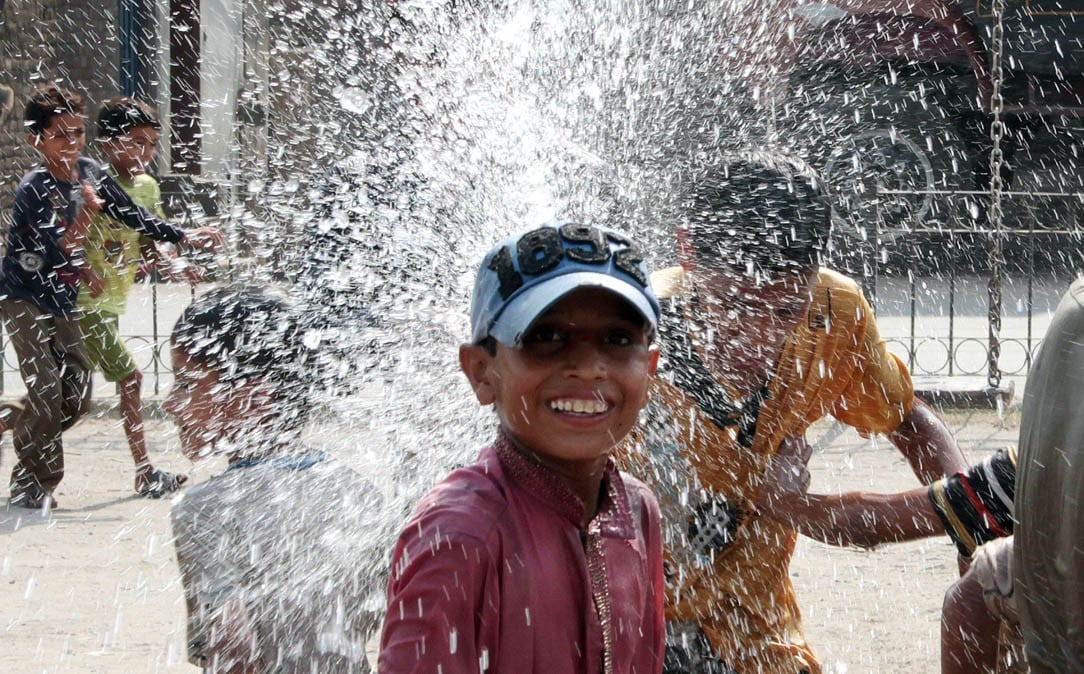
Availability of drinking water, first aid and response centres are all over the city to meet any emergency

Karachi, Pakistan’s largest city with 20 million residents has been put on high alert -- because around this time last year the city suffered 1,200 casualties due to the unprecedented heatwaves.
The public is generally in panic. But there is no extreme summer forecast. Besides, the government as well as the civil society is on high alert and preparations have been made to face dangerous heatwaves, if they ever come again.
Last year, heatwaves had struck the city in June when low pressure developed in the air over the sea that stopped the sea breeze. The wind started blowing from North West and North East, which was dry and increased the temperature. "This year moderate heatwave is predicted," Abdul Rashid, director regional meteorological centre Karachi tells TNS.
Last week, mercury touched almost 40C in the city, but no major harm was witnessed, as volunteers helped people stay hydrated. However, "The next one and a half month is critical. It will be safe after the monsoons start in mid-June," says Rashid. Though, monsoon’s forecast is still premature, clouds in the city’s atmosphere can be predicted.
Majority of people live in houses made of concrete structure that attract more heat and take more time to cool at night. Houses without cross ventilation are the worst affected.
Karachi administration has evolved its two pronged strategy -- preventive and curative, to face any possible heatwave situation. To keep people hydrated, around 500 water/relief centres have been established across the city at all public places like bus stops and railway stations. However, "They become operational when a weather warning is issued," says Syed Asif Haider Shah, Karachi’s young commissioner who is heading the drive for precautionary measures in the city.
All shopping centres and shopkeepers have been pursued to keep water coolers outside their shops so that customers as well as passersby are able to have water when thirsty.
Last year, the city’s major public hospitals remained under pressure because the patients were taken to these hospitals only. This year 58 tertiary care centres including public as well as private hospitals and basic health centres have been nominated for emergency situation while 180 first aid/response centres have been established where doctors’ availability has been assured.
In addition to it, ambulance drivers have been trained to take the heatstroke patients to nearby quick response centres instead of rushing them to main public hospitals. "Patients must be taken there in 10 to 15 minutes," the commissioner said.
The Karachi administration is also collaborating with all other relief bodies including Provincial Disaster Management Authority (PDMA).
Shah said that they would have to remain on high alert in the next three months. PDMA is also engaged in awareness and coordination efforts between various stakeholders.
Director PDMA Nisar Channar says there was panic in the city because of last year’s casualties. District administrations and District Disaster Management Authorities (DDMA) were taking practical measures at operational level.
Water availability has been assured at railway stations, bus stops and marketplaces. "In case of emergency, marriage halls and schools would be closed for one to three days, as heatwaves do not stay longer than three days," he adds.
This year, more efforts have been made for the awareness of citizens. In Karachi, ambulances of Edhi Welfare Association and others have placed banners at the back of their vehicles guiding citizens on steps to take in case of heatstroke.
Channar says that as compared to other districts of the province, Karachi is more vulnerable as its population lives in congested houses. Increase in humidity increases the temperature and affects availability of oxygen.
Climate and Development Knowledge Network (CDKN) and LEAD Pakistan recently organised two workshops in Karachi to engage with stakeholders to facilitate the city in heatwave management. The workshops included participants from the government departments, civil society organisations, non-government organisations, health and rescue services, academia, media and private sector. They prepared their recommendations on preventive measures and gave them to the authorities.